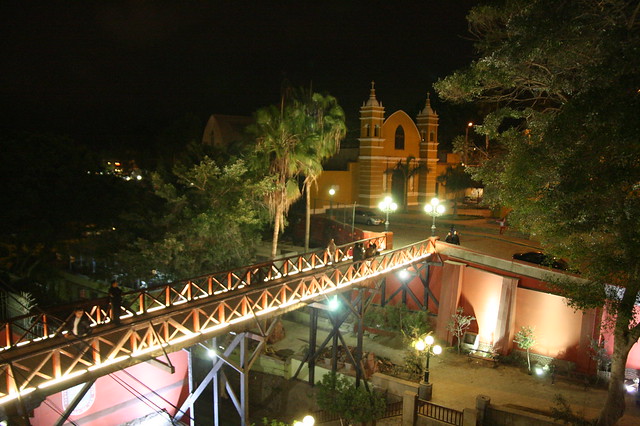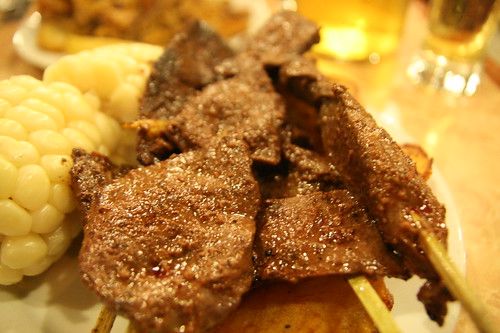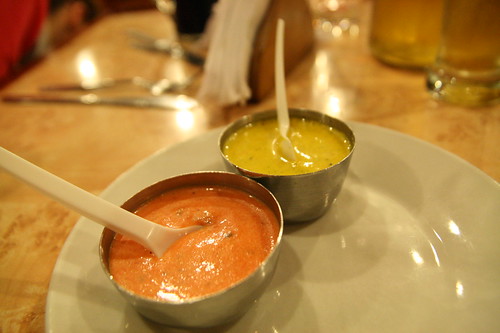There was a very clear moment, as I stood shuffling my feet on the dirt floor in this young man's small thatched-roof home in an impromptu house call, when I debated in my mind whether or not to make up for my lack of a stethoscope and just put my ear directly on his chest. The thought of doing things the old-fashioned way brought a smile to my face. Here I was, not yet a doctor, yet called upon to act as one.
But a memory came as well. A flashback to four years ago, when I was enrolled in Raymond Lifchez's writing class at Berkeley. The minuscule class size (and Professor Lifchez's nudges) was perfect for sharing our writings, experimenting, moving in new direction and backtracking until we found what worked. My writing was really rough back then, bordering on the unintelligibly abstract-- even the most basic elements like narrative and dialogue came slowly, fitfully. Then, one week, I thought I'd write an honest-to-God, plot-and-characters-and-emotion-and-dialogue story. And I'd write about something I was fascinated with: international medicine, the lone doctor who moves into a small village, gets involved with a local, and finds himself shaken and transformed by the reality of the situation. Even though I swear I hadn't read Mountains Beyond Mountains at that point, I named my character Paul (I was thinking more of the New Testament figure spreading the word/medicine).
The piece was rough and tinged by that element of melodrama that crept into so much of my writing early on (Professor Lifchez will attest to this). But the dialogue felt real, the emotions felt real (if overdrawn), but most of all-- Paul felt real. And so did his situation. Because in my mind, much like so many of us that have long dreamed of international medicine, I would become Paul. I would someday take my medicines and my knowledge and my stethoscope out to a place that desperately needed a doctor. And I would live among them, and be the doctor they needed.
It's a fantasy so many of us have had-- I think of so many late night conversations I've had, sitting there spinning the tales of our future lives-- of traveling out in the world, unattached to any one place, bringing our medical skills to the jungles and deserts and slums, earning the respect of those we had helped.
Looking back now, I must sound naive.
The reality of international medicine is something far far different. Perhaps our most naive assumption was that we could fix things with medicine. Not that we would solve everything, but that we would at least be able to eke out some sort of lasting change through providing medical care for a group of people. In truth, such a thing is rarely possible for a doctor alone to achieve--even in the United States. Even the Paul Farmer's of the world can't make it on their own. As I've come to understand, any real change comes from combined efforts.
There's a fantastic quote from one of my attendings at the LA Free Clinic's High Risk Youth Clinic: "For every large complex problem, there is a simple direct solution that is wrong." Large complex problems require large complex solutions. As I'm starting to see, the role of the physician in the international setting is to be just one of the facets of the larger solution. I know it's a blow to our egos, but when you find yourself wrapped up in a project that combines Tuberculosis diagnostics research with microloans with mental health interventions.... things start to make more sense. And you start to realize that you just might actually make a change.
But why am I in the jungle? Because even after everything I've said-- about how it takes these large combined efforts to make a real change--- nothing quite compensates for the emotional immediacy and satisfaction of caring for a patient one-on-one. The unfortunate side effect of working on such a large-scale project is the distance it places between you and those you wish to help, from that human interaction that renews you and refreshes you and keeps you strong. My dear friend Ellen and I have spoken over and over (on many long walks) about somehow working on a global level while maintaining one's link to working with the people themselves, to those individual connections.
And so I found myself in the jungle these few months ago, traveling out on a lark to the butterfly farm with some newfound bird-researchin' hostelfriends. After blue morphos, jaguars, capybaras, I was chatting with the woman who ran the farm. When I mentioned that I was a medical student from Los Angeles, though, her eyes lit up.
"Ah! My employee has been in bed for three days with fever. Come, you must come. None of the doctors know what's going on."
"I could take a look at him."
"Alejandro! Come, come, take this young man to go see Paco."
A lanky boy appeared at the door and beckoned me with his hand. And so I followed. For the patient, of course. But perhaps just as much for myself. To experience, however briefly, what it feels like to be Paul.
More on the experience later.












